The Last Duel ending explained - how close is it to the true story of Marguerite de Carrouges?
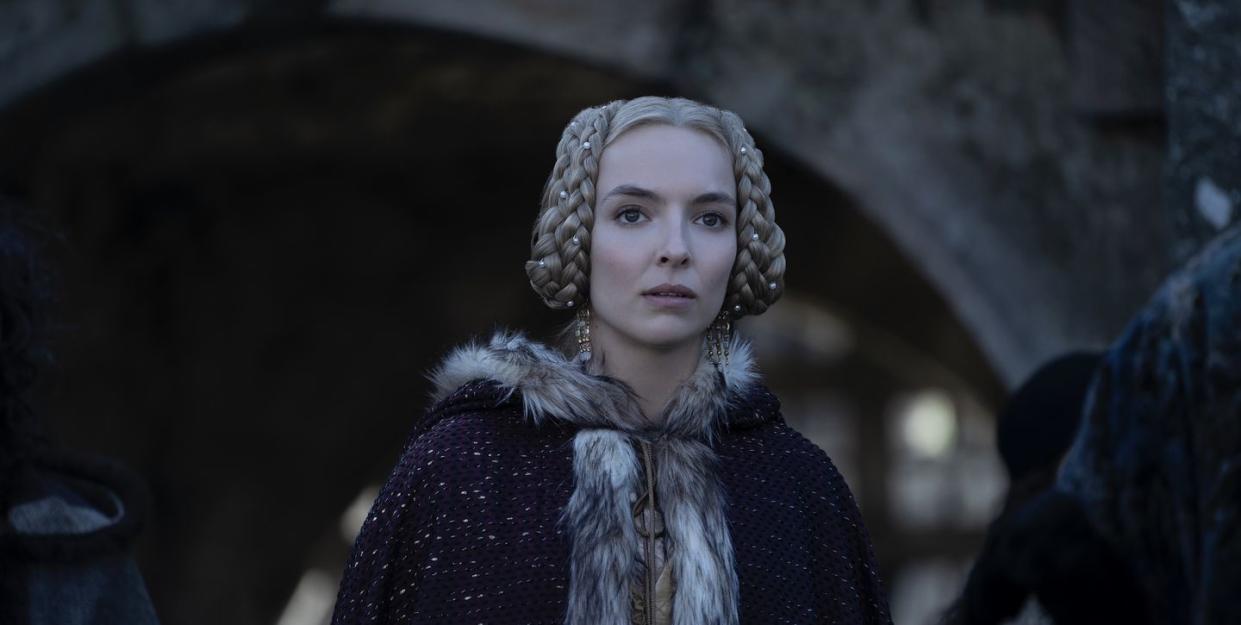
The Last Duel stars Jodie Comer, Matt Damon and Adam Driver as three people who changed the course of French history. The film is based on the true story of the last legally permitted duel (hence the title) fought in France.
The synopsis of the film lays out the basis for what would be the final (official) duel in French history, but as with most 'based on a true story' stories, there are always gaps between reality and fiction. The movie follows the claim by Marguerite de Carrouges (Comer) that she is raped by her husband Jean's friend and squire Jacques Le Gris (Driver).
To prove her claim true, Matt Damon's Jean challenges Le Gris to trial by combat. Of course, the movie is about much more than just the duel, as is the true story — so here's what went down. Warning, The Last Duel spoilers follow.

The movie does follow the true story rather closely, and with a runtime of two and a half hours, we'd hope so. The events leading to the duel were described at great length in Jean Froissart's Chronicles (a prose history of the Hundred Years' War written in the 14th century by Jean Froissart) though director Ridley Scott's screenplay was adapted from Eric Jager's The Last Duel book.
The story is told three times, once from each character's point of view, so some events are repeated while others are only told once — as the story is so close to the events of history as they were recorded, we'll only specify when those two things diverge (which they don't often do, except in the imaginings Scott and the actors create for the characters' internal lives).
On the whole, however, the events follow history. We begin with Jean de Carrouges, who after successful war campaigns for the king of France, finds himself falling out of favour with Count Pierre (Ben Affleck). Pierre favours de Carrouges' friend Le Gris, and the friendship between the men begins to deteriorate.
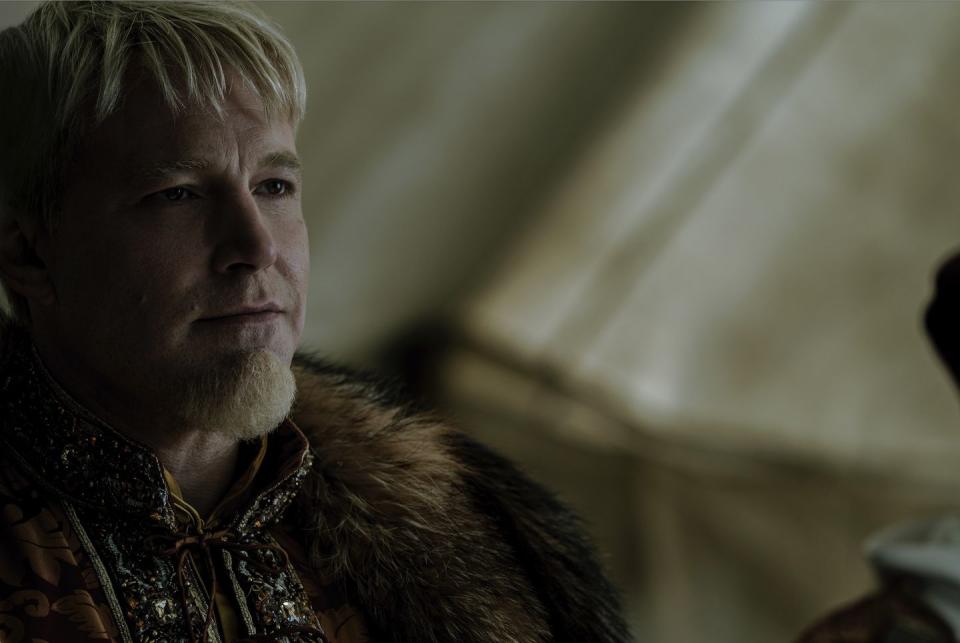
de Carrouges, whose wife and son died of an unknown illness, eventually marries Marguerite, a wealthy but reputationally damaged young woman. Her father had sided against the king twice, and though to many she would seem unmarriageable, for de Carrouges — who desperately needed land, wealth and an heir — she was a good match.
He saw the marriage as a chance to get the better of Le Gris as well, for Le Gris had been gifted by Pierre a parcel of land previously owned by Marguerite's father. De Carrouges sued Pierre for the land and lost, which only put him further on the outs with the count.
Meanwhile, Le Gris continued to rise in Pierre's esteem. In real life, there was another complicating factor — de Carrouges bought land and was forced to turn it over to Pierre, blaming Le Gris for it. But this was not included in the film.
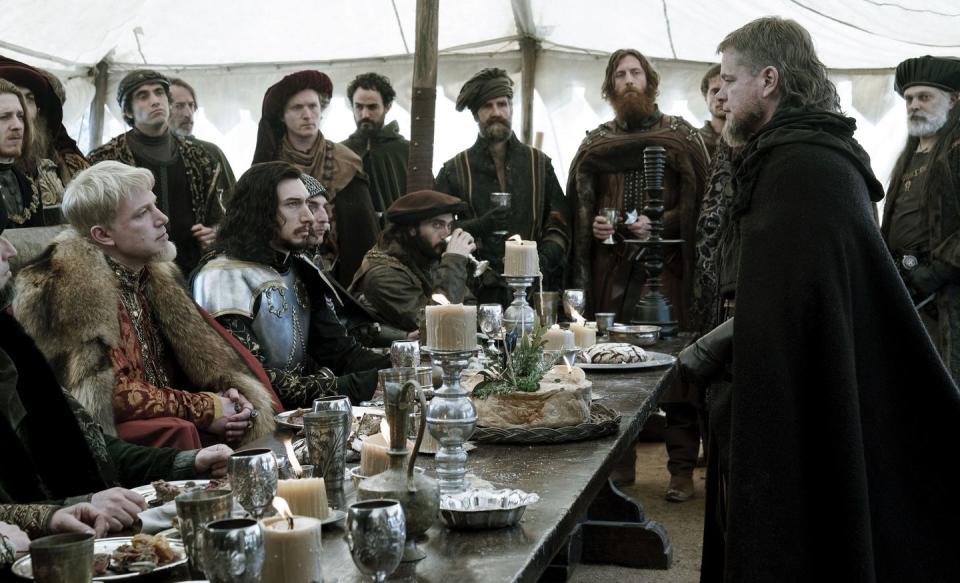
What was in the film was the pair's reconciliation, which took place in 1384 in which Le Gris and de Carrouges agreed to put the past behind them, and de Carrouges introduced Le Gris to his wife Marguerite. Soon after, de Carrouges went on a campaign to Scotland and though it was a military failure, he distinguished himself with his courage.
In the film, however, Pierre is still dismissive of him and Le Gris is still the favourite, which only angered de Carrouges more after their so-called reconciliation. Things come to a head when de Carrouges goes to Paris and his mother in law takes most of (if not all) the servants from the house with her, leaving Marguerite alone.
This is when she is surprised by Adam Louvel (Adam Nagaitis) who asks her to open the door so he can wait, and when she does he reveals that Le Gris is also there to proclaim his love for Marguerite. She refuses his advances, after which he rapes her.

The movie presents two versions of the rape — in Le Gris' version her protests have an edge of teasing to them, and hark back to a previous scene in which he chased a woman around the table before having consensual sex (sort of, given the power dynamic at play and the complete lack of agency women have in their world). Even in Le Gris' version, though, Marguerite's attempts to get away seem less flirtatious and more earnest.
In Marguerite's version, which the movie frames as 'the truth' (rather than the truth according to whomever) her protests are loud and clear as she screams for help. When he leaves he says she should tell no one, especially her husband because he might kill her if he finds out.
When de Carrouges returns home he demands sex, but Marguerite refuses and tells him about the rape, fuelling de Carrouges' anger against his friend. De Carrouges also says that she must have sex with him, as Le Gris can't be the last person to have 'known' her — Marguerite is, effectively, raped again.
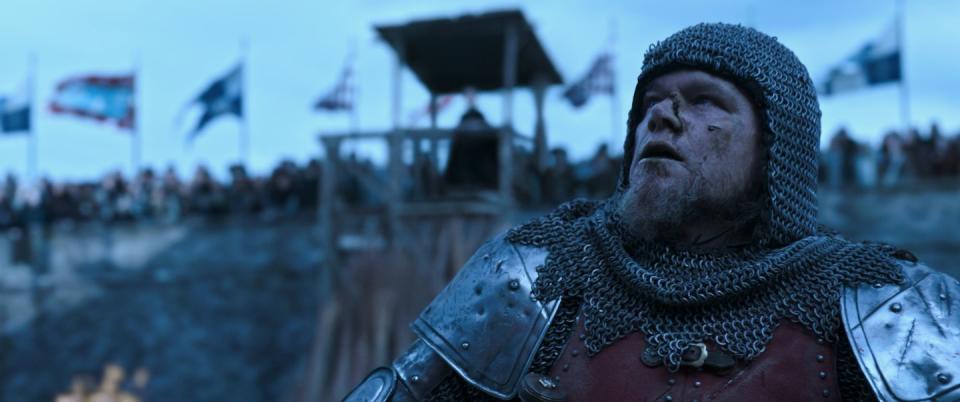
In real life, as in the film, de Carrouges has to first ask Count Pierre for a trial, which is obviously biased in favour of Le Gris. De Carrouges knows that even the King is biased against him, and decides to ask for a trial by duel, in which God decides the outcome by letting the liar die.
There is still a trial, though, and just as in reality, Marguerite is now pregnant. At the time, it was believed a woman could not conceive if she didn't enjoy sex, and therefore her pregnancy was counted against her — it couldn't be rape if she was pregnant, because she must have enjoyed it. Gross!
In the film, it is revealed mid-trial that if de Carrouges loses at the hand of Le Gris, Marguerite will also be killed by being stripped naked, put in an iron collar and set on fire.
Of course, as was likely true in real life as well, no one in the film seemed to care about Marguerite's fate; after all, a crime of rape against a wife was considered a crime against the husband, and a property crime at that since women were mere objects to be possessed.
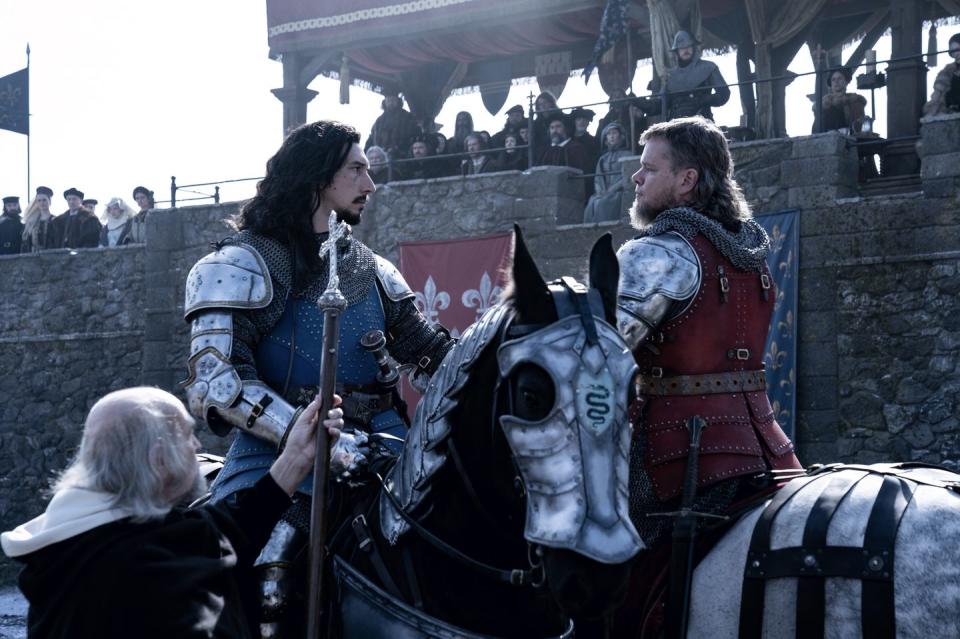
The film does show that at the same time as Marguerite was pregnant, so was the queen. What it doesn't detail is that while Marguerite gave birth to a healthy boy, the queen's son was sickly and died not long after he was born.
While this had no material bearing on the plot, it's an interesting detail given that in the film the queen was often panned to as the sole person to sympathise, however quietly, with Marguerite. In reality, instead of mourning the King held a series of banquets and parties that culminated in the duel between Le Gris and de Carrouges.
Marguerite was forced to watch from a wooden tower on the battlefield (also in view of the many spectators who came to watch) while chained to the floor, awaiting her potential death sentence. If her husband lost she would be found guilty of perjury.

The duel itself was very violent, as it was in the film. It's long and gory and ends with de Carrouges stabbing Le Gris through the mouth (in real life, it was the throat), proving Marguerite to have been telling the truth.
They leave, with the crowds cheering for de Carrouges. The film shows Le Gris stripped and hanged by the ankle in the town square. The movie ends with Marguerite playing with her son, seemingly at peace with her life. There is a brief coda that reveals Marguerite outlived her husband and never remarried.
The Last Duel is now available to watch in cinemas
You Might Also Like

 Yahoo Movies
Yahoo Movies 
